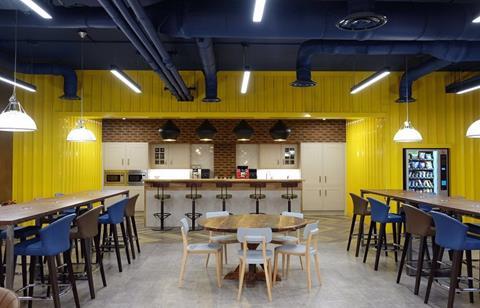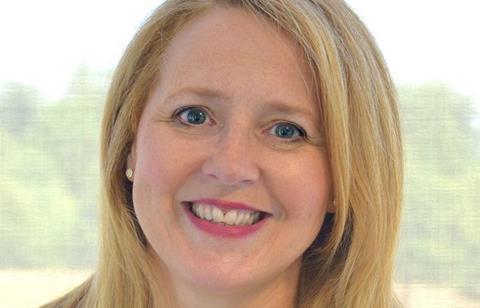
Global software technology organisation CA Technologies has re-launched its wellbeing programme in order to promote a broader and more inclusive definition of wellbeing among its 10,500 international employees.
The initiative was originally implemented 10 years ago, and was re-launched in May 2017 to feature a new ‘Five ways of wellbeing’ structure. Stepping beyond its previous physical health focus, CA Technologies’ revamped strategy now incorporates five pillars: make connections, keep learning, give back, be active and be mindful.
Oonagh McKinley, senior director, Europe, Middle East and Africa (EMEA) reward at CA Technologies, explains: “We were trying to look at a programme that we could apply across a range of countries, of different cultures and different sized offices, [with] different resources, so trying to get something that could appeal to a wider group. We’ve got a slogan: ‘bring what you bring’. We value diversity, we value different ways of thinking, and I think wellbeing and our benefits programme has to reflect that as well. [We] can’t just have one approach to wellbeing. It has to be a broader concept.”
The wellbeing programme is still being rolled out globally to CA Technologies staff, with Bangkok and the Asia Pacific Japan (APJ) region being the most recent to come on board in July 2018.
More than physical wellbeing
A key example of how CA Technologies has interlinked and broadened its approach to wellbeing is with its Mind Your Step four-week pedometer challenge. This sees participating employees unlock videos, guidance and tips around different mental health elements, such as how to deal with sleep or coping with change, once they complete a set number of steps.
Typically held every two years, the last Mind Your Step challenge took place in October 2017, to tie in with World Mental Health Day; 438 employees participated, collectively walking 1.62 times the distance around the globe. An all-female team from the UK won the first-place prize.
Aligning wellbeing with business strategy and values
For McKinley, it is these team challenges, embracing competition and rivalry, that help employees to actively live one component of CA Technologies’ cultural DNA: collaboration. “We’ve very much a sales culture or a sales environment across Europe, so competitive [challenges are] something employees [appreciate],” she says.
As well as aligning the wellbeing programme to organisational values, CA Technologies also threads employee wellbeing into its wider business activities to help foster staff engagement with business strategy. For example, the organisation is a corporate sponsor of the Trek-Segafredo professional cycling team and uses this connection to run cycling simulator challenges for staff. This sees teams from different countries competing against each other to cycle the furthest distance. There are individual male and female winners for the challenge, as well as an overall country winner.
The initial Trek-Segafredo challenge took place in February 2017, where six countries participated, cycling a collective 1,185km. The organisation also held a grand final in Barcelona in May 2017, as part of its start of the year conference. This featured the top six cyclists from the various participating countries, who were flown to Barcelona, competing on the conference stage, with the event being broadcast live to all CA Technologies offices. The winning country received a glass trophy and the six finalists went on a bike ride with the professional Trek-Segafredo riders.
Originally launched in Europe, the cycling simulator challenge was rolled out to CA Technologies’ US and Canadian offices in June 2018, and will be implemented in India and Australia in October 2018. “It’s been a great way of bringing the external marketing together with the wellbeing programme and making it more business relevant,” adds McKinley.
Being family-friendly
Inclusivity is high on CA Technologies’ agenda, and this extends to its approach to family-friendly benefits as well. McKinley says: “It just comes back to the culture, what we’re trying to achieve and what we’re trying to encourage, and appreciating that people may need to take gaps to focus on their family.” This thinking stems originally from the organisation’s founder being a single parent.
In July 2018, CA Technologies launched a new global parental leave policy that enables male and female employees to take up to 12 weeks of fully paid leave during the first year after having a baby or adopting a child. Previously, the organisation had a paternity leave policy that was introduced two years ago in Europe, which allowed 15 days of fully paid paternity leave. “We were keen to start setting some minimum standards for all our employees globally,” McKinley explains. “We’ve been working on it for the past four months, making sure we’ve got the policies and we can incorporate it, because when covering so many countries, [we] have to be clear on local regulations, statutory requirements, reporting, etcetera.”
CA Technologies also operates 10 Montessori on-site nurseries globally, which are run by its own employees rather than being outsourced. This is subsidised by the organisation and paid for by employees via salary sacrifice. It also provides five days of paid carers’ leave and allows nursing mothers to transport breast milk home when travelling for business. “The family-friendly side of things is very important and with our average age, particularly in Europe, being 44, it’s something that appeals to our particular type of employees,” McKinley says.
Collating feedback
CA Technologies measures the success of its benefits and events primarily by tracking event attendance and distributing a six-monthly employee opinion survey, which includes five questions about employee engagement. It also carries out focus groups, usually concentrating on one benefit per session. For example, the last round of focus groups reviewed the organisation’s long-service awards. CA Technologies also hosts an annual benefits fair in January, which is normally linked with various wellbeing activities.
Benefits are communicated to employees using the staff intranet as well as internal social media platform Yammer. However, McKinley notes that her team receives feedback regularly through other methods, thanks to the organisation’s open culture. “If people have got questions or concerns, they’ll tend to just find us quite easily,” she says. UK employees also have access to a benefits portal, which provides information and allows employees to amend their provision, for example to increase their pension contributions, or sign up for medical cover.
Senior leadership buy in, although previously a challenge, has also been a more visible aspect of employee communications, especially in relation to wellbeing, notes McKinley. Two senior business leaders each committed to focus on one of the five ways of wellbeing for the next year at CA Technologies’ most recent start of the year conference, while the organisation’s president has created videos and blogs around mental health resilience. Employee wellbeing champions in each country are also helping to promote the strategy as part of CA Technologies’ top-down, bottom-up approach.
McKinley details talent attraction and retention as a key business issue for CA Technologies, which is why the organisation is seeking to be as inclusive as possible, to accommodate existing global employees with diverse cultural expectations as well as to attract potential new hires.
McKinley says: “We value different types of people with different backgrounds, different ways of thinking and therefore [our] benefits offering has to appeal to a wide range of people and what engages them and what they value. I think it is about total reward and it’s about a broader proposition. It’s about our environment, it’s about employee engagement. It’s [a] much broader remit than the old, traditional [compensation] and benefits. It’s how [an organisation’s] total reward proposition, including the benefits, supports [the business] in terms of defining [organisational] culture.”
At a glance
CA Technologies is a global software provider which aims to help organisations propel forward technologically by supplying relevant software in areas such as mainframe enterprise and security. Its mission centres around removing barriers to enable ideas to flourish.
The organisation has 10,500 employees globally, with 500 based at the UK head office in Berkshire, and 2,500 employees located in India.
For UK employees, the average tenure is nine years and the average age is 44. The UK workforce primarily has jobs based in sales, services support or marketing, and is 36% female.
Business objectives
- To move software products away from license agreements and to use a subscription model instead.
- To have more software applications that customers can access, try and buy online rather than having to perform physical software installations.
- To introduce more products that are software-as-a-service (Saas) enabled.

Career history
Oonagh McKinley, senior director, EMEA reward, joined CA Technologies 10 years ago in September 2007. She initially worked as director of benefits for EMEA regions, with a distinct focus on compensation and benefits. Since being promoted into her current role, McKinley’s focus has broadened to encompass total reward on an international scale. Now, her reward remit covers EMEA, Asia and India as well as CA Technologies’ operating sites outside of north and south America. This equates to 40 countries in total.
Prior to working at CA Technologies, McKinley worked in the telecommunications and professional services sectors, among others. Notably, when acting as director of reward and performance for a previous employer, she managed to prepare an initial public offering (IPO) in a short six-month period.
Read more...











